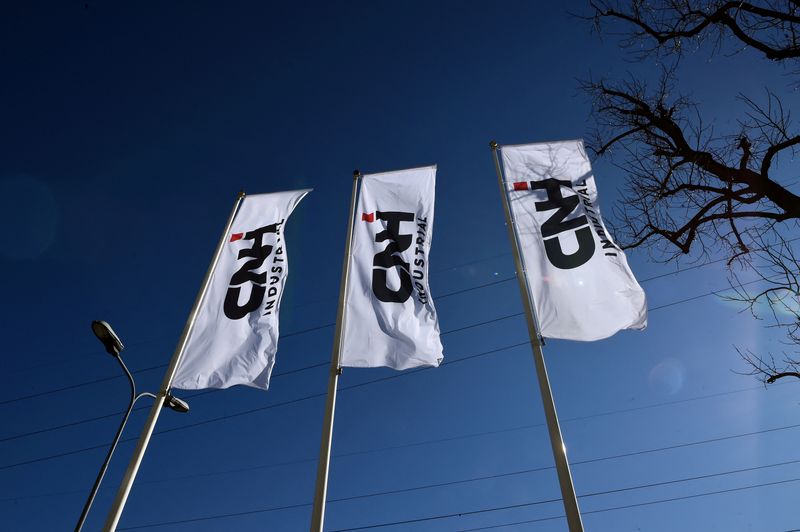
© Reuters. FILE PHOTO: Flags with CNH Industrial logo are pictured outside CNH Industrial building in Turin, Italy, February 5, 2020. REUTERS/ Massimo Pinca/File Photo
By Bianca Flowers
(Reuters) – Union members at a CNH Industrial (NYSE:) plant in Wisconsin are expected to vote against ratifying the latest contract offer from the construction and agriculture equipment maker, possibly extending an eight-month long strike, a union representative said on Wednesday. Local members of the United Auto Workers (UAW) union will vote on Saturday on the proposed contract. In May, over 1,000 union members in Racine, Wisconsin, and Burlington, Iowa, walked off their equipment-making jobs after a six-year contract expired at both facilities. UAW local union president in Racine, Yasin Mahdi, where roughly 700 of the striking workers are based, told Reuters that despite prolonged bargaining negotiations, CNH Industrial (CNHI) has barely budged on demands from members for better working conditions and a bump in wages amid rising inflation.
It was not immediately clear how CNHI’s striking workers in Iowa will vote. A Burlington union representative could not be immediately reached for comment. CNHI declined to comment. The company has upped its initial wage increase offer from 18.5% over the course of three years for non-trade skilled workers, but has fallen short in other areas, including increasing costs for health insurance premiums that would take effect after this year, Mahdi said. “When you factor in how much insurance is going to go up versus wages, you’re losing money,” he added. The length of the CNHI strike is unusual and well beyond the two-month average in the United States, said Robert Bruno, a labor and employment professor at the University of Illinois Urbana-Champaign. With a tightening labor market, union workers in the industrial sector for companies such as Boeing (NYSE:) and Deere (NYSE:) & Co. have gone on strike in recent years. “What we’re seeing is union members rejecting contracts at a higher rate and the end result is that they do much better,” he said.


Be the first to comment